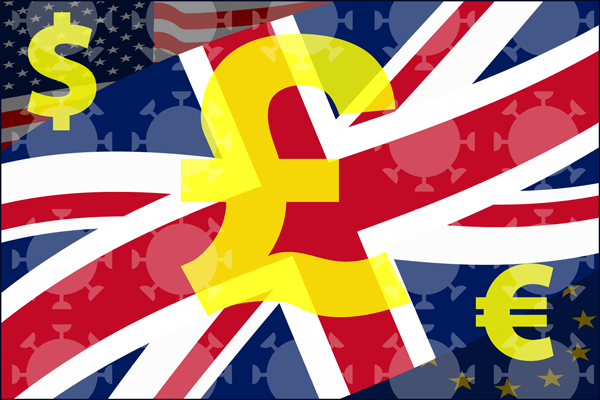Nobody said it would be easy. A contentious referendum followed by several years of political wrangling have brought the UK to the point of finalizing Brexit, which became official on January 31, 2020. The UK is currently negotiating the terms of leaving the EU, which is scheduled to fully take place on January 1, 2021. The approach to a transition has been to allow trade, travel, employment, and the general conduct of business as usual to remain under current EU rules through 2020.
Until COVID-19 Changed Everything
As reported in the New York Times, Boris Johnson’s government has thus far resisted any suggestion that the Dec. 31 deadline for reaching a broad agreement with the rest of the EU be delayed, despite the outbreak’s effects. Politics seems to hold sway here. The report cites an example, how despite the extreme financial measures being taken to support the economy, and resulting pressures, the UK declined to participate in the EU-wide effort to obtain ventilators and PPE for healthcare workers. Apparently a political decision in deference to Brexit hard-liners.
While polls suggest British voters favor a delay by a wide margin, it is true that any agreement must cover a wide range of issues spanning resource rights, transportation, services, industries, customs and immigration. Arguably, the sooner it is known what the lay of the land looks like – deal or no-deal – the sooner UK businesses and the general economy can move forward, and marketing to UK businesses and consumers can proceed with confidence.
The U.S. and UK share a long history together as allies and trading partners. One statistic they currently share is not at all envious. As of May 6, the U.S. and the UK rank #1 and #2 globally in coronavirus death totals. The U.S. and UK have each pumped immense sums of money as a percent of GDP into propping up their respective economies, while they struggle to mitigate spread of the virus.
As reported in Forbes, since Brexit, radical notions such as the privatization of aspects of the UK’s National Health Service have been floated, (and have been met with staunch opposition, the flames of which have been fanned by COVID-19). To be clear, the iconic institution of the NHS is not for sale. What may be in play is opening the UK pharmaceutical and healthcare market to U.S. companies in ways that could circumvent price controls, and extend patent protection. Favorable trading relationships with manufacturers of medical devices (as in, ventilators) have been mentioned. The UK’s go-it-alone position described earlier may explain why the prospect of a U.S./UK trade agreement that opens markets and secures sources would be attractive.
If implemented, these are huge market opportunities, but at what price? There is two-way benefit here, though the greater need for goods and services perhaps lies with the UK healthcare system. Should such arrangements materialize, they will hopefully be mutually agreeable to both parties, benefiting UK healthcare providers on behalf of the populace.
While bi-lateral trade agreements with individual nations may develop post-Brexit, for the time being the UK will continue to function as part of the eurozone bloc. However it will no longer have a voting seat at the table among the other EU member states. What this will cost UK businesses from the standpoint of commerce and cooperation is not yet clear. And if no deal can be reached the UK would be subject to WTO tariffs on products sent to the EU and customs check at EU borders. A sticking point is what the future beyond any agreement hold. Will the UK agree to a trade deal that embraces staying in lock step with the EU, referred to in The Guardian as “dynamic alignment”? To do so calls into question why Brexit is necessary, while leaving latitude for divergence makes reaching a comprehensive trade deal harder.
Doors Will Close & Doors Will Open
How supply chains will be affected is unknown. Main or regional corporate headquarters of non-UK companies may decamp to mainland Europe. UK-based companies seeking new markets beyond the EU will have to carve out new deals, and in the event of a no-deal Brexit, lose preferential status regarding EU tariffs, customs, and privacy laws. Supermarket prices may rise. Outsource-dependent retailers may suffer. Once friction-free categories may bog down. The changes may have an impact on how marketers reach them: what they offer at what price, and how goods and services can be delivered.
How Could Brexit Benefit UK Business, Labor & COVID-19 Response?:
Brexit and the COVID-19 pandemic pose intertwined challenges. Following is a shortlist of plausible effects and outcomes beneficial to UK businesses, labor, society, and those who market with and to them in this extraordinary environment.
- Monetary contributions owed to the EU can be internally re-directed to address COVID-based effects on UK business and healthcare needs
- Due to the pound’s drop in value after Brexit, UK businesses that market to the EU have, and should continue to see sales revenue improvement
- The weaker pound also encourages domestic sourcing and production, meaning more attractive pricing for UK consumers
- Fresh bi-lateral trade agreements are in the works across the globe, beyond the potential pharma/medical device example with the U.S.
- Fewer regulations and simpler compliance may benefit SMBs competing in the world market
- The EU-sourced workforce may decrease, and be replaced by UK-based and trained workers, bolstering the domestic HR market
- The migration from EU law to UK law will create consulting opportunities for legal and regulatory guidance
There is a website devoted to the UK transition period that helps prepare individuals and businesses for whatever comes next. Marketers can get a heads up on what’s in store. Business owners can get customized guidance by answering a series of questions:
- Business Ownership & Operation – This includes sole traders (self-employed), limited companies, and small and medium enterprises.
- Employment from other European countries – This includes EU countries and Switzerland, Norway, Iceland and Liechtenstein.
- Exchange of personal data – Personal data includes customers’ addresses, staff working hours or information you give to a delivery company. This includes organizations located in the EU, Norway, Iceland and Liechtenstein.
- Receipt of EU or UK government funding – This includes funding like Erasmus+ and Horizon 2020.
- Selling products or services to the UK public sector – This includes non-government organizations, such as hospitals and schools, and central or local government organizations.
- Reliance on intellectual property protections – Intellectual property protection includes copyright, trade marks and patents.
- Export/Import activity with the EU, Providing services or doing business in the EU. Transporting goods across EU borders – Activity includes temporarily taking goods across the EU border, as to a trade fair.
- What does a business/organization do? – Categories of activity and industry, similar to SIC codes.
Becoming familiar with what UK businesses are facing will be valuable for marketing to those businesses. UK businesses that embrace what their customers and colleagues must deal with stand a better chance of future success.




